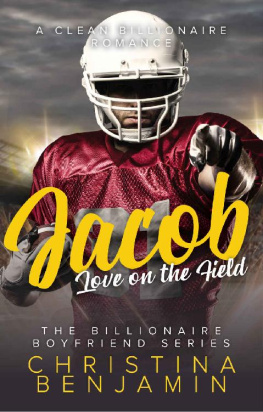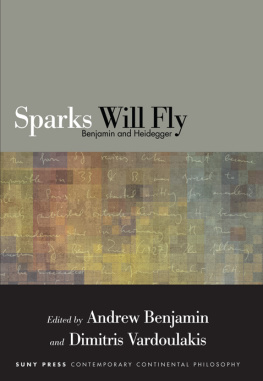The University of Chicago Press, Chicago 60637
The University of Chicago Press, Ltd., London
2019 by The University of Chicago
All rights reserved. No part of this book may be used or reproduced in any manner whatsoever without written permission, except in the case of brief quotations in critical articles and reviews. For more information, contact the University of Chicago Press, 1427 E. 60th St., Chicago, IL 60637.
Published 2019
Printed in the United States of America
28 27 26 25 24 23 22 21 20 19 1 2 3 4 5
ISBN-13: 978-0-226-60781-8 (cloth)
ISBN-13: 978-0-226-60795-5 (paper)
ISBN-13: 978-0-226-60800-6 (e-book)
DOI: https://doi.org/10.7208/chicago/9780226608006.001.0001
Library of Congress Cataloging-in-Publication Data
Names: Kahan, Benjamin, author.
Title: The book of minor perverts : sexology, etiology, and the emergence of sexuality / Benjamin Kahan.
Description: Chicago : The University of Chicago Press, 2019. | Includes bibliographical references and index.
Identifiers: LCCN 2018033471 | ISBN 9780226607818 (cloth : alk. paper) | ISBN 9780226607955 (pbk. : alk. paper) | ISBN 9780226608006 (ebook)
Subjects: LCSH: Paraphilia. | Sexology.
Classification: LCC HQ71.K34 2019 | DDC 306.7dc23
LC record available at https://lccn.loc.gov/2018033471

This paper meets the requirements of ANSI/NISO Z39.481992 (Permanence of Paper).
Fittingly for a book about a multiplicity of origins, this projects beginnings are difficult to locate. It likely began in earnest when the incomparable Heather Love suggested that I read Down and Out in Paris and London and I found myself buoyed up and inspired in Philadelphia, enamored by Orwells account of acquired sexuality and Heathers unfailing knack for pointing me in the right direction. Or perhaps it began much earlier when Julia Stern sensitized me to the language of etiology when she outlawed the use of the word lifestyle in her undergraduate classes (the significance of which I didnt fully understand). The happiness of these ever-proliferating beginnings has been sustained and amplified by the unending conversation, rambunctious laughter, and foodlust of many friends.
At LSU, I have been blessed with an uncommonly tranquil atmosphere for writing and thinking made possible by the warmest of colleagues: Dana Berkowitz, Elena Castro, Brannon Costello, Lara Glenum, Phil Maciak, Eric Mayer-Garcia, Rick Moreland, Pallavi Rastogi, Chris Rovee, Sharon Weltman, Sunny Yang, and Michelle Zerba. Ann Whitmers omniscient institutional savvy has navigated me smoothly through many rough waters. My sheer glee at having an office next to Soli Otero no doubt echoes down the hallway and daily enriches my life on campus. Elsie Michies generous spirit and theoretical acuity imbue many of these pages; I could not have a better senior colleague. Michael Bibler and Chris Barrett make my department feel like a home. My life would certainly be diminished if it were not for Michaels bigheartedness, humor, passion for gooey butter cake, and willingness to chat about queer theory. He is the quintessence of collegiality. Chriss room-illuminating smile, gusto, and intellectual panache have so often stirred me to reconnect with this project. Anyone who has been the recipient of her prodigious gifts of friendshipwhich is to say anyone who has met herunderstands that there is no way to ever repay her. We all miss Lisi Olivers zaniness and zest for living, which makes her passing all the more sorrowful.
An Early Career Fellowship at the University of Pittsburghs Humanities Center afforded the opportunity for some of this projects earliest chapters to take shape. The intellectual frisson of meeting Julie Beaulieu, Randall Halle, Dan Morgan, and Todd Reeser provided a much-needed initial spark for writing. Jonathan Aracs gracious hospitality, mentorship, and infectious love of literature have touched many parts of this project. Gayle Rogerss zeal for modernism and interest in all things Havelock Ellis have made us friends for life and the happiest of interlocutors.
Most of this book was written at The United States Studies Centre at the University of Sydney on a Visiting Fellowship. There I was welcomed with open arms by Thomas Adams, Ivan Crozier, John Frow, Paul Giles, Michael Griffiths, Elizabeth Ingleson, Malcolm Jorgensen, Heather Murray, Aaron Nyerges, Matthew Sussman, Lee Wallace, and Matthew Wittman. Arriving on a continent where I didnt know anyone, Rodney Taveira and Sarah Gleeson-White made me feel that I was in the company of old friends. Annamarie Jagose introduced me to orange wine and improved my manuscript with her incisive comments and deep engagement. Melissa Hardies and Kate Lilleys rollicking conversation and intellectual camaraderie have inspired this project many times over. Perhaps the best part of being in Australia was meeting Guy Davidson, whose steadfast friendship and brilliance made my life and this project much better.
I completed the initial draft of this book at the National Humanities Center with the support of the Delta Delta Delta Fellowship. The intellectual paradise of the Centerto say nothing of Tom Reeds positively divine peanut butter cookiesbrought me many new friendships and serendipitous discoveries. I am especially grateful to have met Marlene Daut, Florence Dore, Laurent Dubois, Mary Floyd-Wilson, Kim Hall, Richard Mizelle, and Luise White. The most unanticipated pleasure, however, was sharing my time at the Center with my writing partner extraordinaire and previous fellowship-sharer, James Mulholland. James has been thinking and talking with me about this project for nearly a decade now, and its every sentence, paragraph, and chapter have been improved by the force of his intelligence, joviality, happy contrariness, and generosity. I cannot say how much Ive benefited from both the extensiveness and intensiveness of his engagement. Finally, I am grateful to Robert Newman for his stewardship of the Center and to all of its staff, but particularly the worlds best librarians: Brooke Andrade, Sarah Harris, and Joe Milillo.
I have never once lost interest in this project, and that is in large part due to the profound engagement and inspiration of a diffuse network of interlocutors and friends: GerShun Avilez, Tiffany Ball, Robert Caserio, Matt Cohen, Pete Coviello, Lee Edelman, Jonathan Flatley, Jennifer Fleissner, Julian Gill-Peterson, Jonathan Goldberg, Andrew Gustafson, Eric Hayot, Peter Jaros, Jonathan Ned Katz, Michael LeMahieu, Bill Maxwell, Melanie Micir, Michael Moon, Vivian Pollack, Gayle Rubin, Chris Tiffin, Shane Vogel, Kyle Wagner, Rebecca Walkowitz, Lynn Wardley, and Robyn Wiegman. Jeff Mastens boundless generosity and scholarly example have so thoroughly shaped my lexicon of scholarly possibility that Id hardly know how to gloss a text without him. J. B. Capino introduced me to queer theory when I was an undergrad and his enduring mentorship continues to guide me. The keen advice and quick wit of Crystal Lake have provided both unwavering support for this project and frequent happy respites from it. Henry Abelove is easily the most charming man in New York City and embodies friendship as a way of life. He has given and given to this project, unsparingly offering his stunning intellect and his beneficence. Andy Gaedtke is a friend for all seasons, helping me think through perplexing theoretical quandaries when I was feeling most winter bound, ready with a quick smile and a joke, and always chilling the champagne in time for a celebration. There is not a better friend to be had in this world. The expansiveness and range of Josh Schusters interests, his insatiable curiosity, and his love of shoptalk have provided hours of necessary, enthralling conversation. Rebecca Sheehan is a fireball of fun, making me roar with laughter, all the while furnishing this project with blinding insights. Joe Drury has a rare elective affinity (a high compliment in the vocabulary of this book) for my writing, able to attune himself and help me find articulacy better than anyone else. But even more than his uncommon editorial prowess, his inexhaustible kindness and exciting phone chat nurtures and sustains me on a near daily basis. Greta LaFleur is my co-conspirator in the natural and unnatural history of sexuality and her spirit of mischief and mirth has made many aspects of my life and this project better. Jane Funke selflessly lent me her synoptic knowledge of sexology, strengthening the entire manuscript in its final stages. The unmatched kindness of Paul Saint-Amour, his sheer goodness and brilliance, have cast their golden rays on many parts of this project, but especially its last chapter, which was prompted by his characteristically generous invitation to write about weak theory. Beth Freeman has been one of my most enthusiastic boosters and her rich engagement with this project in many forms over many years has been of inestimable assistance. Valerie Traub has seen this project with the farsightedness of binoculars, helping me to approach its most ambitious goals. Her thoughtfulness, thoroughness, attention to detail, and encyclopedic command of the field set a new standard of excellence that we should all aspire to.


 This paper meets the requirements of ANSI/NISO Z39.481992 (Permanence of Paper).
This paper meets the requirements of ANSI/NISO Z39.481992 (Permanence of Paper).

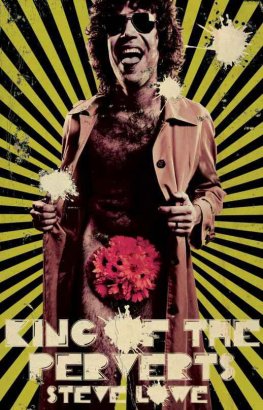

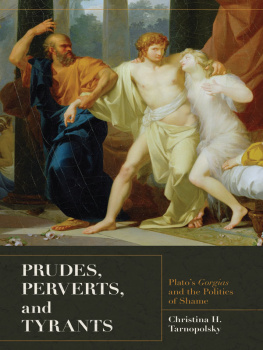
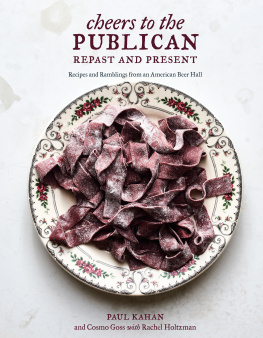
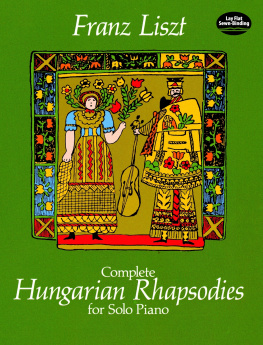

![Paul Kahan - Cooking for Good Times: Super Delicious, Super Simple [A Cookbook]](/uploads/posts/book/150685/thumbs/paul-kahan-cooking-for-good-times-super.jpg)
